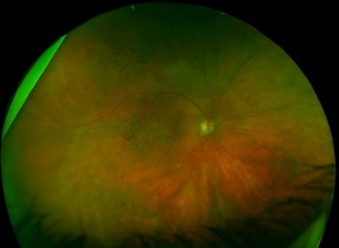Living with Type 1 or Type 2 diabetes can lead to many other health issues, especially if your blood sugar is not kept in a healthy range. What many diabetics do not take seriously enough is the effect it can have on your vision. One of the leading causes of blindness for Americans with diabetes is diabetic retinopathy. Unfortunately, it is also the most common eye disease associated with diabetes. Early eye disease detection is critical if you are diabetic and wish to maintain your eyesight.
Understanding Diabetic Retinopathy
At the back of your eye is the retina, which senses light and is vital for healthy vision. The retina has many very small blood vessels which can be damaged easier than most of your other blood vessels. Diabetic retinopathy occurs when these blood vessels undergo changes as a result of diabetes.
The Silent Vision Thief
Diabetic retinopathy is often called a “silent thief” because it is rare for a patient to notice changes in their vision until after the disease has progressed significantly enough to cause permanent damage. Left untreated, this eye disease goes through stages of progression that rob the retina of nourishment, eventually causing your body to try to create more blood vessels to supply the nutrients needed. The new vessels are weak and leak blood which blocks light from the retina, resulting in blindness.
Preventing Blindness
Early eye disease detection is your best chance at maintaining your eyesight. The earlier diabetic retinopathy is discovered, the better its response to treatment. The only way to limit damage is to have regular retinal exams to look for signs of diabetic retinopathy. By incorporating optomap ultra-widefield retinal imaging technology, in your retinal exams your doctor can see up to 200 degrees of your retina so your doctor can see into the periphery, which is where most of the earliest stages of eye disease begin.
Talk to your Doctor
Make sure the doctor responsible for your vision care is aware that you are diabetic. Set up a schedule for eye disease detection and be sure not to miss any appointments. If your doctor does not currently use Optos technology for early diagnosis and treatment of eye disease.
